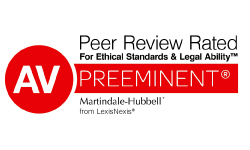Certified Experience Matters
Resources
Hunting Accident?
Dos and Don'ts
1. Preserve Evidence
The gun, the ammo, boots, shoes, hunting clothes, ATV, gun case, everything. Don't throw ANYTHING away.
2. Law Enforcement
Get a copy of any law enforcement report. Don't despair if all of the facts don't mesh with what you think happened. Law enforcement's first goal is to determine whether the matter is or is not a criminal matter. If not, some law enforcement don't do a complete investigation.
3. Your Health
If you are the victim of a hunting accident, don't think about sections one and two until you get the best health care that you can. Go to a bigger city if you can, especially if the injury is serious.
4. The Right Attorney
Hunting accident litigation is complex. There are issues related to products liability, premises liability, personal liability, insurance, jurisdiction (state or federal), and a whole host of other issues. Do not hire an attorney who does not have extensive experience handling hunting accident cases.
Subro-what?
Subrogation comes uninvited to almost every legal claim
1. What is subrogation?
If you are hurt and require medical care, there are at least three basic groups (other than you) that might pay for that care: private insurance, federal insurance (Medicare), and state insurance (Medicaid). The laws vary greatly from state to state, but all three have a right to recover some or even all of the amount you might recover in an accident.
2. Is a hospital lien subrogation?
Technically, no. But it operates in a similar fashion. In Texas, if you are treated in an ER withing 72 hours after an auto accident, the hospital can file a lien that actually has teeth. That is, they want to get paid for the services rendered.
3. I am a claimant/plaintiff on the eve of settlement. Why do I care?
You care because in addition to paying your attorney, you will need resolve the subrogation interests. I have only met one plaintiff who stated that he did not want a dime. I was able to pay off $300,000 in medical bills with $20,000, and that was all he wanted. Most plaintiff's want to have a check written to them. And that is understandable. The question then becomes, What is the size of the check? If you have a lazy or unskilled attorney, the check will be smaller because he won't work hard on the subrogation end.
4. When the dust settles, there is more dust.
When I settle a case for a client, I know the battle has just begun. And that battle relates to achieving large reductions in the amounts allegedly owed by the plaintiff to insurance companies and hospitals. In a perfect world, everyone gets paid 100%, but we don't live in that world. It is especially unpleasant that insurance companies, to whom premiums are paid, show up without a hint of guilt if they can take additional money from their policy holders. Ask your attorney about subrogation. The settlement is a good step forward, but there is more work to be done.
What is Legal Causation?
An easy-to-understand guide to a very tough legal question.
1. Can a butterfly cause an earthquake?
No. When you want to find out the cause--or, more importantly, a cause--of any event, you must keep your wits about you. The law does not care about your girlfriend telling you that she wishes you were taller, which caused you to leave the house, which put you at the red light that the other guy ran. You can't blame your girlfriend for this.
2. Legal cause versus factual cause.
Don't worry about this distinction. Right now, you need to worry about factual cause. Did someone, some company, some product, or some condition cause what happened to you. And you should also be prepared to face accusations that you were a cause of the incident. Unless you are a passenger in a commercial airplane that crashes, your alleged negligence will almost certainly be a focus of the opposing lawyer.
3. You probably cannot fully assess the possible causes of a complex accident.
I hope that doesn't strike you the wrong way. But did you think about lane markings related to your pedestrian/auto accident? An attorney I know (and represented) did, and a California city wrote a settlement check for $50,000,000 to two injured joggers. Did you think about the seats in the car? The strength of the roof? The propensity of the vehicle to roll? The way the windows shatter? Whether the vehicle has rollover stability control? These are just examples. In hunting accidents, aviation accidents, construction accidents, and many others, causation is the key. Most personal injury attorneys can read a medical record. But some are not skilled at considering and learning all of the possible causes of injury or death.
4. Think expansively.
Some will view that as trying to generate litigation where there may be none. Not so. In litigation, discovery allows you to narrow your case. You never file a case that is not plausible, but you can file a case on information and belief. That is, you don't have to know everything a week after your accident. Find a good lawyer, and ask that person to help you with understanding what may have caused your accident. This is one of the hardest questions that is faced in most cases.
Settlement Videos
Your result will be better if your lawyer produces a settlement video
1. What is it?
A settlement video is like a short documentary film. There is almost never a good reason to have it last more than 30 minutes, and 15 minutes is a good goal to shoot for. In it, there will be two basic concepts addressed--liability and damages. My personal favorite for production is Andrew Colton. He is a true pro.
2. What does the video include?
If your life has been significantly changed by an accident, that can be captured on video, and video is always better than your attorney writing about it in a settlement demand. If you become disabled and you have children, you can't help like you could before. You can't work like you could before. You can't experience joy like you could before. This can be captured on video, and I have seen videos--many in my own cases--that will rock even the most hardened of insurance adjusters. As for liability, you need something to say. If your case is a slam dunk on liability, don't leave it out, especially if there are components to liability that might make a jury angry. Present your case and don't hold back (the defense won't hold back in trial when they present your client as someone not worthy of the damages sought).
3. When?
Now. Your case isn't getting better with the passage of time. You client will heal, at least to some extent, with the passage of time. The time to capture and present the pain is now. Even if you have not shored up liability, the time is now.









